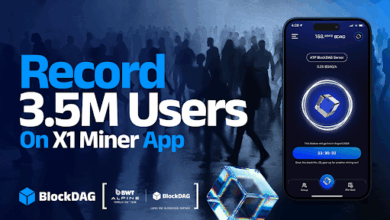Tokenization Will Unlock 24/7 Financial Markets
Robinhood CEO believes tokenization is the future, enabling 24/7 markets and transforming how people trade forever.

- Robinhood CEO champions tokenization for market access
- 24/7 trading could become the new norm
- Tokenization may disrupt traditional financial systems
Robinhood CEO Vlad Tenev has made a bold prediction about the future of trading and financial markets. According to him, tokenization—the process of converting real-world assets into digital tokens on the blockchain—could soon reshape how global markets operate.
Tenev believes that tokenization will unlock the ability to trade assets around the clock, eliminating the traditional constraints of business hours and stock exchange timings. “Once people experience it, they’ll never go back,” he declared, pointing toward a future where crypto-style 24/7 markets become standard across all asset classes.
With Robinhood already offering crypto trading 24/7, the company has firsthand insights into how users behave when given full-time access. The CEO’s latest comments suggest Robinhood may be preparing to expand that model to include tokenized versions of stocks, bonds, and more.
The Shift to Always-Open Markets
Traditionally, stock markets operate during set hours and close on weekends or holidays. This limited access creates friction for investors, especially younger generations accustomed to the “on-demand” nature of digital services. Tokenization could eliminate these barriers, enabling continuous trading and real-time settlement through blockchain technology.
Imagine trading shares of Apple or Tesla at midnight or buying a tokenized bond on a Sunday morning. That’s the kind of future Tenev envisions—accessible, global, and always-on. This transformation could also democratize access to financial products, especially for users in different time zones or emerging markets.
Tokenization’s Broader Impact on Finance
Beyond just extended hours, tokenization has the potential to reduce costs, increase transparency, and streamline compliance. It could also allow fractional ownership of high-value assets—such as real estate or art—further broadening participation in global finance.
While challenges remain, including regulatory uncertainty and technological barriers, the momentum behind tokenization is growing. As companies like Robinhood and others explore this frontier, one thing is clear: the future of finance might never sleep again.



